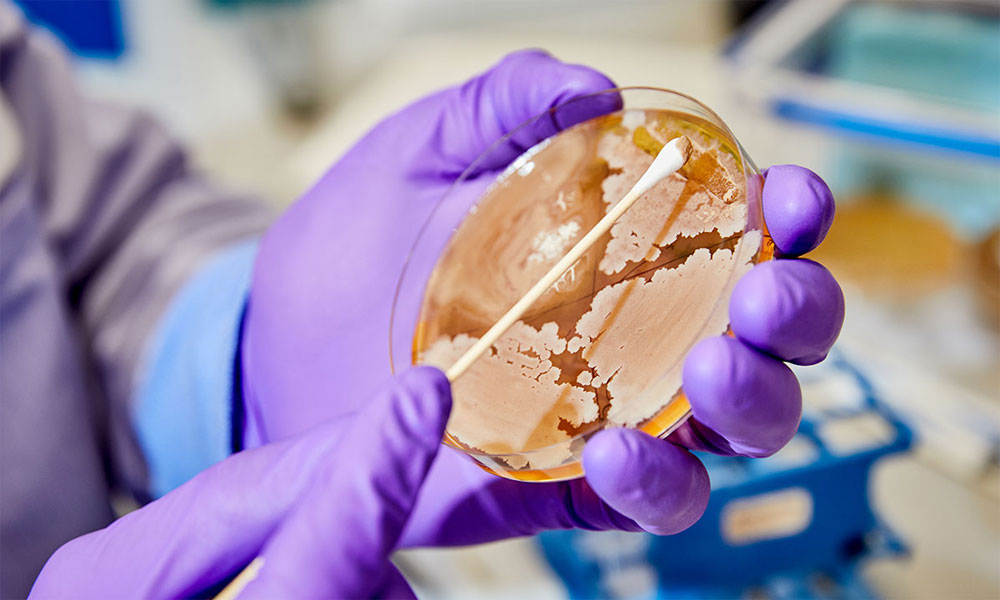Austrian Researchers Prove That Gut Bacteria Impacts Brain Development

A brand new examine reveals that intestine micro organism impacts brain growth in untimely infants. The analysis carried out by the University of Vienna reveals that extremely untimely infants have a better threat of brain harm.
Premature births have been rising worldwide and stay the main reason for perinatal mortality and morbidity. While current advances in medical care have elevated the survival charges of untimely infants, many survivors endure from lifelong brain harm.
The researchers have found that concentrating on sure intestine micro organism might assist with the early therapy of brain harm. They discovered that an overgrowth of the bacterium Klebsiella within the intestinal tract will increase particular immune cells. It additionally raises the chance of neurological harm in untimely infants.
The examine, printed within the journal Cell Host & Microbe, reveals the complexity of the gut-brain relationship. The intestine, brain, and immune methods all have an effect on one another since they’re intently associated. Researchers name this the gut-immune-brain axis.
Bacteria within the intestine affect the immune system and likewise screens intestine microbes and responds to them. The intestine additionally connects with the brain through the vagus nerve along with the immune system.
“We investigated the role this axis plays in the brain development of extreme preterm infants,” says the primary writer of the examine, David Seki. “The microorganisms of the gut microbiome — which is a vital collection of hundreds of species of bacteria, fungi, viruses, and other microbes — are in equilibrium in healthy people. However, especially in premature babies, whose immune system and microbiome have not been able to develop fully, shifts are quite likely to occur. These shifts may result in negative effects on the brain,” explains the microbiologist and immunologist.
Patterns within the microbiome might point out brain harm
“In fact, we have been able to identify certain patterns in the microbiome and immune response that are clearly linked to the progression and severity of brain injury,” provides David Berry, microbiologist and head of the analysis group on the Centre for Microbiology and Environmental Systems Science (CMESS) on the University of Vienna.
He’s additionally the Operational Director of the Joint Microbiome Facility of the Medical University of Vienna and University of Vienna. “Crucially, such patterns often show up prior to changes in the brain. This suggests a critical time window during which brain damage of extremely premature infants may be prevented from worsening or even avoided,” he says.
Comprehensive examine displaying how intestine micro organism affect brain growth
The interdisciplinary group recognized particular biomarkers that would assist with the event of recent therapies.
“Our data show that excessive growth of the bacterium Klebsiella and the associated elevated γδ-T-cell levels can apparently exacerbate brain damage,” explains Lukas Wisgrill, Neonatologist from the Division of Neonatology, Pediatric Intensive Care Medicine and Neuropediatrics on the Department of Pediatric and Adolescent Medicine on the Medical University of Vienna.
“We were able to track down these patterns because, for a very specific group of newborns, for the first time, we explored in detail how the gut microbiome, the immune system, and the brain develop and how they interact in this process,” he provides.
The examine included 60 untimely infants born earlier than the usual 28 weeks gestation interval. They weighed lower than 1kg for a number of weeks and even months. The group utilized revolutionary scientific strategies comparable to 16S rRNA gene sequencing to check the microbiome, amongst different strategies. They analyzed blood and stool samples, brain wave recordings (e.g., aEEG), and MRI pictures of the infants’ brains.
Premature infants have important variations in intestine micro organism.
Babies born earlier than the third trimester have different neural circuitry resulting from varied environmental cues. One of those consists of microorganisms instantly colonizing the intestine, influenced by the various neurons within the nervous system. Mounting proof reveals that in early growth, enteric microorganisms obtain indicators from each the intestine and brain.
Premature infants have a better threat of creating perinatal white matter accidents (PWMI). Scientists have discovered that perinatal infections and subsequent irritation play a task in PWMI and might make brain injuries worse. This might result in life-long issues comparable to cognitive and motor operate delay, cerebral palsy, neurosensory difficulties, and ADHD.
To forestall extreme irritation, the creating immune system and intestine microbiome should stay balanced. However, in extraordinarily untimely infants, the intestine microbiota and its host have important impairments. It’s nonetheless unclear if the impaired relationship outcomes from early-life intensive medical care or lacking immunological cues.
The neonatal intestine homes an abundance of γδ T cells, which stand out amongst T cells resulting from their versatile receptor chains. Scientists have noticed these cells in brain lesions of untimely infants with white matter harm, suggesting they might play an important position in mediating gut-brain axis communication.
The analysis will proceed with two research sooner or later.
The inter-university cluster project was a collaborative effort by Angelika Berger (Medical University of Vienna) and David Berry (University of Vienna). The complete examine marks the start of a analysis project totally investigating how the microbiome impacts brain growth in untimely infants. Also, the researchers will comply with up with the kids within the authentic examine.
“How the children’s motoric and cognitive skills develop only becomes apparent over several years,” explains Angelika Berger.
“We aim to understand how this very early development of the gut-immune-brain axis plays out in the long term. The children’s parents have supported us in the study with great interest and openness,” says David Seki. “Ultimately, this is the only reason we were able to gain these important insights. We are very grateful for that.”
Final ideas on how intestine micro organism might play a essential position in infants’ creating brains
An Austrian examine reveals that untimely infants have totally different intestine micro organism than infants born at full-term. Specifically, they’ve an overabundance of the bacterium Klebsiella, which will increase the chance of brain harm in preterm infants.
The group hopes that figuring out patterns within the gut-immune-brain axis will result in higher therapies for brain harm. Targeting this micro organism might enhance outcomes for untimely infants born with neurological harm.












